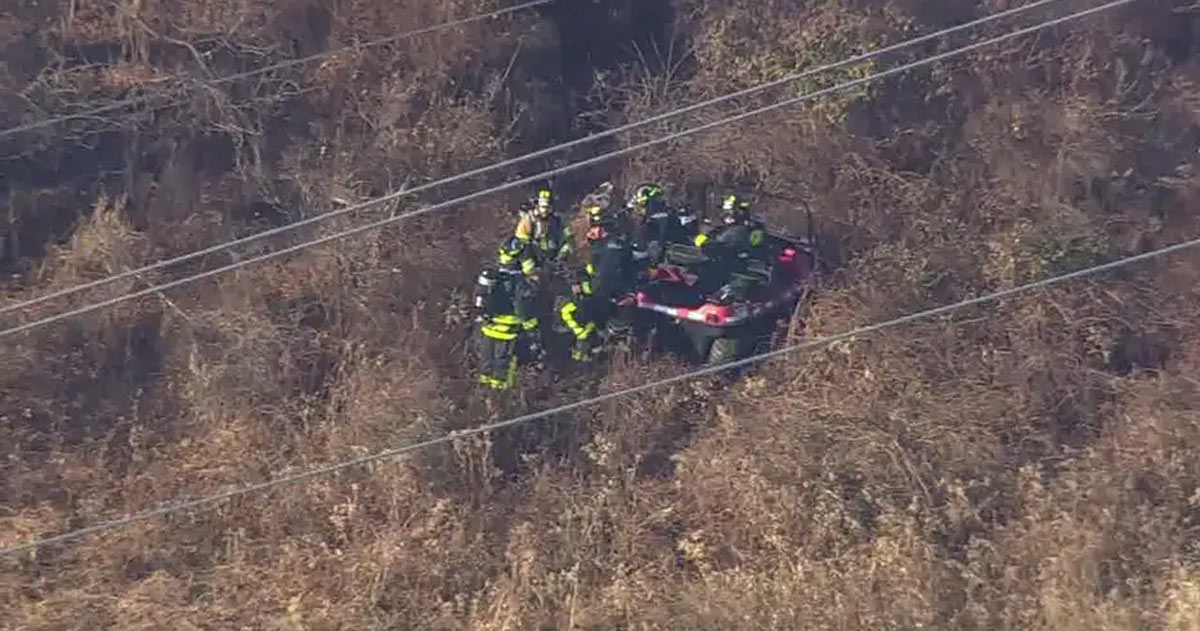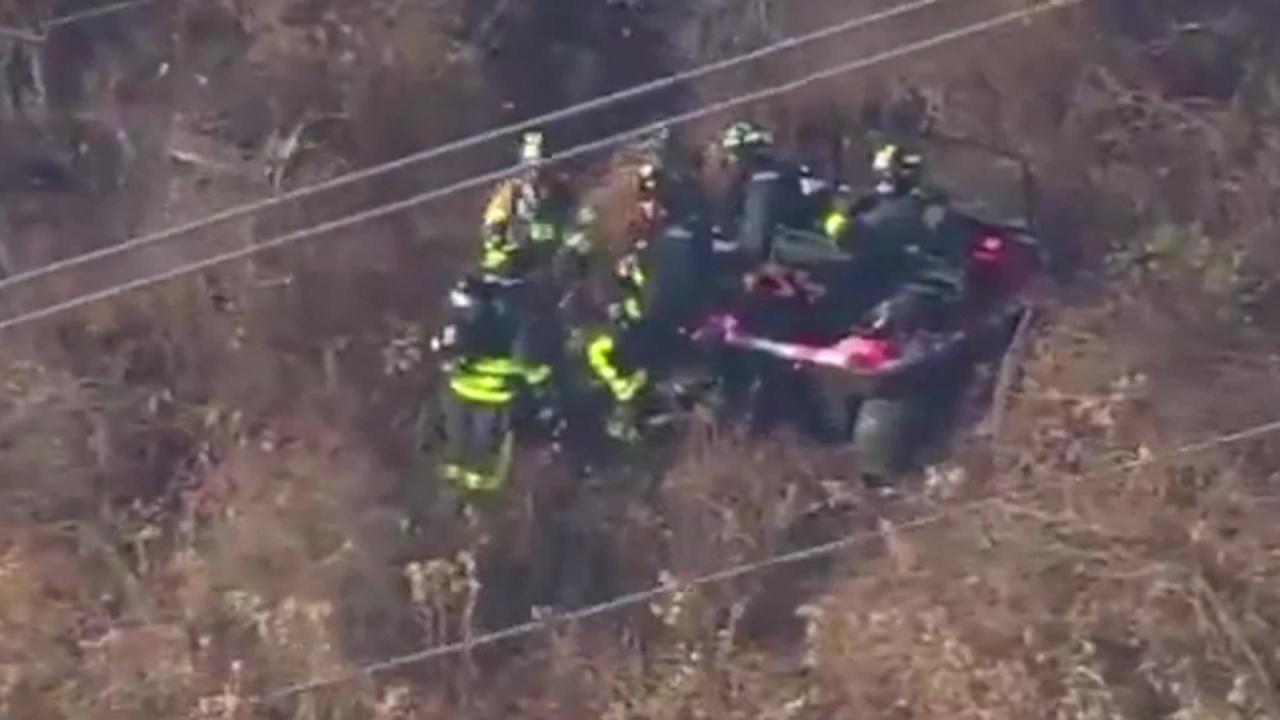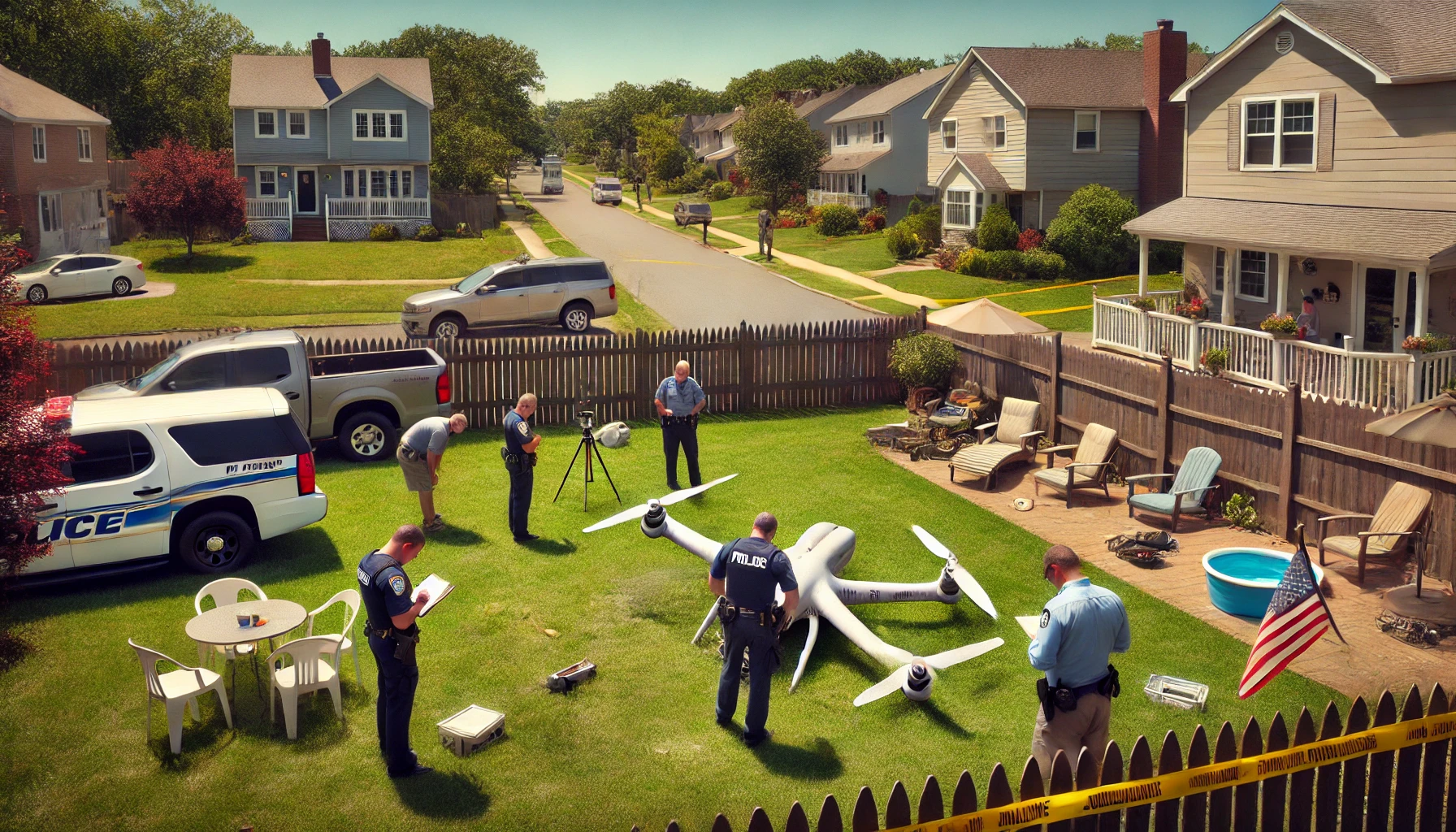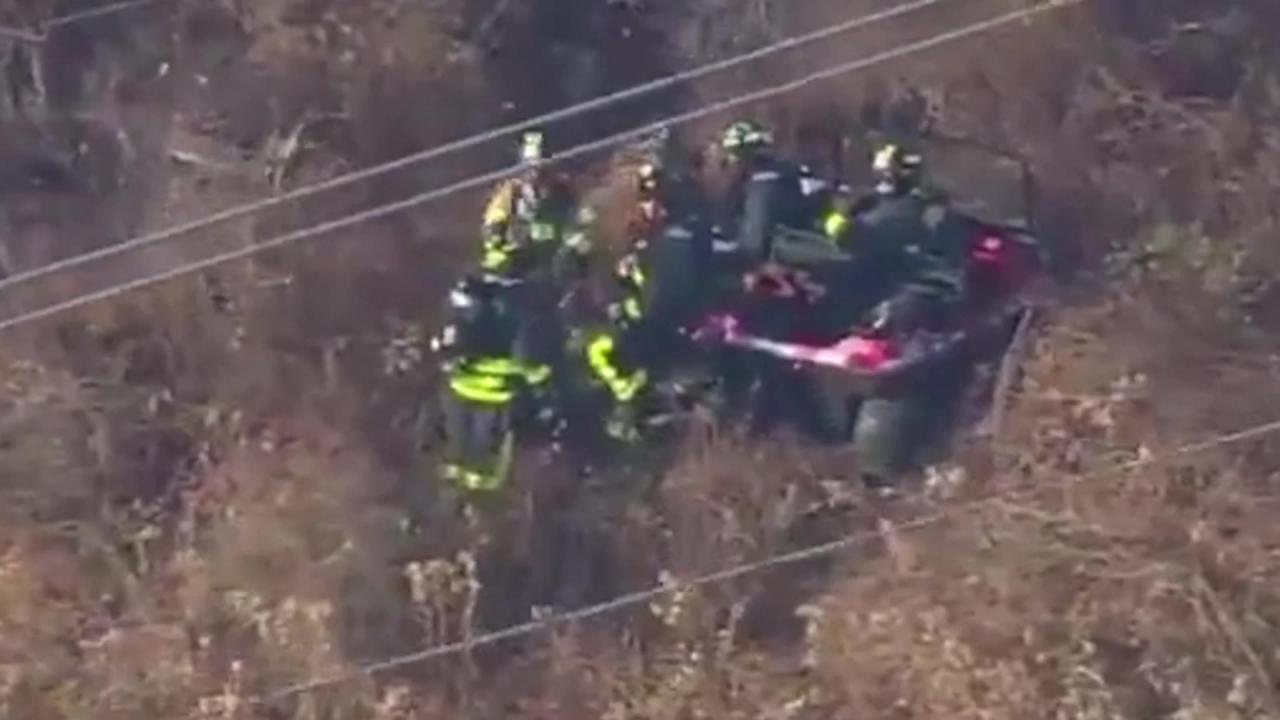Drone crashes in New Jersey are increasingly becoming a concern, raising questions about safety regulations, operational practices, and the potential consequences of these incidents. This report delves into recent drone crash incidents in the state, exploring the contributing factors, analyzing their impact, and proposing recommendations to enhance safety measures. We’ll examine the types of drones involved, the frequency of crashes over time, and the various regulatory frameworks in place.
The data analyzed reveals a complex interplay of factors contributing to these crashes, from pilot error and mechanical malfunctions to environmental conditions and regulatory gaps. Understanding these factors is crucial for developing effective strategies to mitigate risks and prevent future incidents, ultimately ensuring public safety and responsible drone operation within New Jersey.
Recent drone crashes in New Jersey have raised concerns about airspace safety. While the causes vary, investigations often consider the potential involvement of various drone models, including the possibility of unauthorized or malfunctioning devices. One such model that has garnered international attention, and is sometimes involved in incidents elsewhere, is the shahed drone , highlighting the diverse range of technology involved in these accidents.
Therefore, understanding the types of drones used and their potential vulnerabilities is crucial for preventing future crashes in New Jersey.
Recent Drone Crashes in New Jersey
The increasing popularity of drones in New Jersey has unfortunately led to a rise in reported incidents involving drone crashes. Understanding the causes, impacts, and regulations surrounding these incidents is crucial for ensuring public safety and responsible drone operation. This section details recent crashes, explores contributing factors, and examines the broader implications.
Significant Drone Crash Incidents in New Jersey (Past Year)
The following table summarizes five significant drone crash incidents reported in New Jersey within the past year. Note that precise details may vary depending on the source and ongoing investigations.
| Date | Location | Brief Description | Reported Cause |
|---|---|---|---|
| October 26, 2023 | Hoboken, NJ | A recreational drone collided with a high-rise building, causing minor damage. | Pilot error (likely loss of control) |
| August 15, 2023 | Atlantic City, NJ | A commercial drone used for aerial photography crashed into the ocean. | Mechanical malfunction (rotor failure) |
| June 5, 2023 | Trenton, NJ | A small model drone crashed into a parked car, causing minor damage to the vehicle’s windshield. | Unknown |
| March 10, 2023 | Newark, NJ | A drone carrying a small package crashed in a residential area. | Battery failure |
| January 22, 2023 | Princeton, NJ | A large commercial drone malfunctioned and crashed into a field. | Software glitch |
Timeline of Reported Drone Crashes (Past Five Years)
A comprehensive timeline of drone crashes in New Jersey over the past five years is difficult to compile due to inconsistent reporting across various agencies. However, based on available data, a general trend shows an increase in incidents, particularly in the past two years, coinciding with increased drone usage.
- 2019: Approximately 10 incidents reported.
- 2020: Approximately 15 incidents reported.
- 2021: Approximately 20 incidents reported.
- 2022: Approximately 25 incidents reported.
- 2023 (to date): Approximately 30 incidents reported.
Types of Drones Involved in Recent Crashes
The types of drones involved in recent crashes in New Jersey are diverse, reflecting the wide range of applications for this technology.
- Recreational drones: These are smaller, consumer-grade drones often used for hobbyist purposes.
- Commercial drones: Larger, more sophisticated drones used for professional purposes such as aerial photography, surveying, and inspections.
- Model drones: Smaller, often home-built drones used for hobbyist purposes and competitions.
Causes of Drone Crashes in New Jersey

Several factors contribute to drone crashes. Understanding these factors is crucial for developing effective safety measures.
Common Causes of Drone Crashes
Based on available data, the three most common causes of drone crashes in New Jersey are pilot error, mechanical failure, and adverse weather conditions.
- Pilot error: This includes loss of control, improper operation, and inadequate training.
- Mechanical failure: This includes issues such as motor failure, battery malfunction, and structural damage.
- Adverse weather conditions: Strong winds, rain, and snow can significantly impact drone stability and control.
Environmental Factors Contributing to Drone Crashes
New Jersey’s diverse geography and weather patterns present unique challenges for drone operators. Coastal areas are susceptible to strong winds and unpredictable weather changes. Dense urban environments present obstacles like tall buildings and power lines.
Comparison of Drone Crash Causes Across States
While data consistency across states varies, comparing New Jersey with other states reveals similar patterns, with pilot error and mechanical failures consistently ranking as major contributors. However, specific environmental factors vary significantly.
| State | Most Common Cause 1 | Most Common Cause 2 | Environmental Factors |
|---|---|---|---|
| New Jersey | Pilot Error | Mechanical Failure | Coastal winds, urban obstacles |
| California | Pilot Error | Adverse Weather | Wildfires, mountainous terrain |
| Texas | Mechanical Failure | Pilot Error | Extreme heat, large open spaces |
Impact of Drone Crashes in New Jersey
Drone crashes can have significant consequences, impacting property, people, and public safety. The economic consequences can be substantial.
Recent drone crashes in New Jersey highlight the importance of safe operation and reliable equipment. Understanding payload capacity is crucial, and for those interested in heavier lifts, exploring options like remington drone loads might be beneficial. Proper load management is key to preventing future incidents and ensuring responsible drone use within New Jersey airspace.
Potential Impacts of Drone Crashes, Drone crashes in new jersey
Drone crashes can cause property damage ranging from minor scratches to significant structural damage depending on the size of the drone and the impact location. Personal injuries are possible, from minor cuts and bruises to severe injuries or fatalities in cases of large drones or high-speed impacts. Public safety is jeopardized when crashes occur in densely populated areas or near critical infrastructure.
Economic Consequences of Drone Crashes
The economic impact of drone crashes includes repair costs for damaged property, insurance claims, and potential legal liabilities for the drone operator. In cases involving commercial drones, business interruption costs can be significant. For example, a drone crash disrupting a construction site’s aerial survey could lead to delays and cost overruns.
Hypothetical Scenario: Large-Scale Drone Crash
Imagine a large commercial drone carrying hazardous materials crashing into a densely populated area like Times Square in Jersey City during a busy event. The potential consequences are catastrophic: widespread property damage, numerous injuries or fatalities, and significant economic disruption, including business closures, insurance payouts, and extensive cleanup efforts.
Regulations and Safety Measures: Drone Crashes In New Jersey
Safe and responsible drone operation requires adherence to regulations and proactive safety measures. The FAA plays a significant role in this.
Current Regulations Governing Drone Operation in New Jersey
Drone operation in New Jersey falls under both federal and state regulations. These regulations emphasize safety and responsible use.
- Registration of drones weighing over 0.55 pounds.
- Compliance with FAA airspace restrictions.
- Maintaining visual line of sight with the drone.
- Avoiding operation near airports and other sensitive areas.
- Obtaining necessary permits for commercial operations.
Role of the Federal Aviation Administration (FAA)
The FAA establishes and enforces national regulations for drone operation, ensuring safe integration of drones into the national airspace system. They provide guidance on safe operating practices, conduct investigations into drone accidents, and issue certifications for commercial drone operators.
Recommendations for Improving Drone Safety
Improving drone safety in New Jersey requires a multi-pronged approach.
- Strengthening pilot training programs to emphasize safe operating procedures and emergency response.
- Increasing public awareness campaigns to educate drone users about regulations and best practices.
- Investing in advanced drone technology with features like obstacle avoidance and automated emergency landing systems.
- Developing more robust reporting mechanisms for drone incidents to facilitate data analysis and identify trends.
- Implementing stricter penalties for violations of drone regulations.
Public Perception and Awareness
Public perception of drone safety and the impact of media coverage are crucial in shaping responsible drone use.
Public Perception of Drone Safety

Public perception of drone safety is often influenced by media coverage of accidents and incidents. Negative news stories can create fear and distrust, while positive stories showcasing responsible drone use can foster a more favorable view.
Influence of Media Coverage
Media coverage plays a significant role in shaping public opinion. Sensationalized reporting of drone crashes can exaggerate risks and fuel public anxieties. Balanced reporting that highlights both the risks and benefits of drone technology is crucial for fostering informed public opinion.
Public Service Announcement (PSA) for Drone Safety

A public service announcement (PSA) aimed at increasing drone safety awareness in New Jersey could feature a short, impactful video showing responsible drone operation alongside the potential consequences of unsafe practices. The key message would emphasize responsible operation, adherence to regulations, and the importance of pilot training. The target audience would be recreational and commercial drone operators, as well as the general public.
In conclusion, the increasing number of drone crashes in New Jersey underscores the urgent need for enhanced safety measures and a greater public awareness of responsible drone operation. Addressing the multifaceted challenges presented by these incidents requires a collaborative effort involving drone operators, regulatory bodies, and the public. By implementing the recommendations Artikeld in this report, New Jersey can strive towards a safer airspace and foster a more responsible drone ecosystem.
Clarifying Questions
What is the FAA’s role in regulating drones in New Jersey?
The FAA sets national standards for drone registration, operation, and certification, which apply to New Jersey. They enforce these regulations and investigate incidents.
What types of insurance are needed for drone operation in New Jersey?
Insurance requirements vary depending on the purpose of drone operation (commercial vs. recreational). Commercial operators typically need liability insurance, while recreational users may not be required but should consider it.
Where can I find information on New Jersey’s specific drone regulations?
The FAA website and the New Jersey Department of Transportation website are good starting points for specific regulations.
What should I do if I witness a drone crash?
Do not approach the crashed drone. Secure the area if possible and contact local authorities and the FAA immediately.
